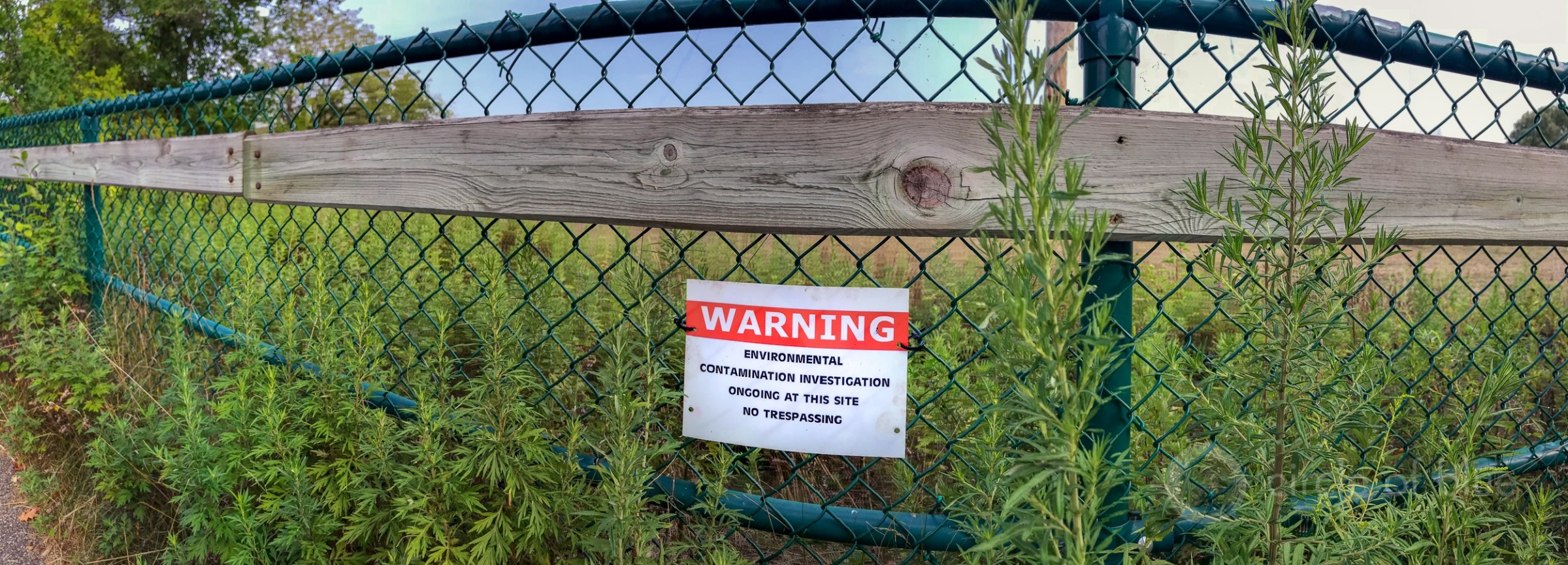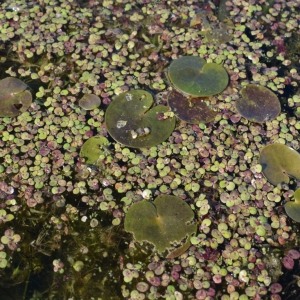The Stream, August 9, 2023: Proposed Gold Mine in Brazil Threatens Waterways and Indigenous Families

Toxic PFAS chemicals have been detected at dozens of groundwater sites across Michigan. Photo: J. Carl Ganter/Circle of Blue
YOUR GLOBAL RUNDOWN
- An underground “water battery,” soon to receive $500 million in development funding, will help Scotland in its bid for net-zero energy targets.
- Data centers in London may face water restrictions during peak demand, says the UK’s largest water company.
- An open-pit gold mine in Brazil’s Para region would displace 800 Indigenous families and cause irreparable harm to riparian habitat, if approved.
- Shoal Lake 40 First Nation, an Anishinaabe community, is suing Winnipeg and the Canadian government over the lasting impacts of a century-old water diversion.
A group of 22 U.S. states and territories is moving to block 3M’s $10.3 billion PFAS water pollution settlement, saying the punishment doesn’t hold the company accountable.
“While I appreciate the effort that went into it, the proposed settlement in its current form does not adequately account for the pernicious damage that 3M has done in so many of our communities.” — California Attorney General Rob Bonta, in a statement.
The 22 states and territories opposing the settlement include California, New York, Texas, and the District of Columbia. The settlement was proposed in a South Carolina federal court in June.
The money would be distributed to “cities, towns, and other public water systems to test and treat contamination of PFAS” over a 13 year period, Reuters reports. But, in some cases, these entities would be agreeing blindly. They would need to opt in to the settlement before knowing how badly contaminated their water is, how much money they will receive, and how expensive testing and cleanup may be.
The states and territories are also arguing that the settlement, in its current form, “could shift liability for future health concerns caused by PFAS from 3M onto the water systems themselves,” meaning “the chemical maker could potentially seek compensation from the water systems in future litigation over things like PFAS-related cancer clusters.”
— Christian Thorsberg, Interim Stream Editor
Recent WaterNews from Circle of Blue
- Minnesota Tribe Sets Enforceable Rules To Safeguard Wild Rice and Water Supply — Ineffective voluntary pollution prevention practices are set aside for mandatory regulation.
- Exploring Rivers Around the Globe for Clues to Carbon and Climate Change — Scientists investigate how climate change is affecting rivers worldwide.
The Lead
News broke this week that deforestation rates in Brazil’s Amazon Rainforest had fallen to their lowest level since 2017 — good news for the world, and especially for the Indigenous communities who continue to steward the country’s lands, trees, and waters responsibly.
But development in the world’s largest rainforest is not completely curbed. Canadian mining company Belo Sun is preparing to build an open-pit gold mine in the Para region, “home to the Juruna, Arara, Xipaya and Xikrin peoples, along with many other riverine communities that cultivate small-scale farms and fisheries on the banks of the Volta Grande stretch of the Xingu River,” Al Jazeera reports.
The 2,400-hectare site, estimated to extract six tons of gold per year for 17 years, would displace 800 Indigenous families and require the additional construction of a tailings dam for chemical waste, an explosives facility, and a sanitary landfill.
Residents and environmentalists fear the project, if fully approved by the Brazilian government, will cause irreparable harm to both the region’s Native communities and biodiverse riparian habitat.
This Week’s Top Water Stories, Told In Numbers
16.8
Billions of dollars of debt currently owed by Thames Water Ltd, the United Kingdom’s largest water and wastewater company, Bloomberg reports. As England reckons with extreme heat this summer, the private utility is now considering restrictions on water flows to London-based data centers during hours of heightened demand. These centers, which require large amounts of water to operate and cool their servers, have come under scrutiny from environmentalists for their excessive use of the resource. In this case, being located in heavily populated areas does not help. Restrictions would also alleviate the pressure on Thames’ pipe infrastructure, which is more susceptible to leaks when demand is high.
600
Number of megawatts by which a planned expansion at a hydroelectric power facility in Scotland will increase capacity, EuroNews reports. Sometimes called a “water battery” for its function in moving water from one reservoir to another in order to generate electricity, the site is located in an underground cavern, within a mountain. Drax, a renewable power developer, has promised $500 million in updates to expand the “water battery” in an effort to move Scotland closer to a net-zero future. But, the company says, further development will require outside investment and support from the UK government “to provide an appropriate market mechanism for hydropower and other long-duration energy storage technologies,” according to EuroNews.
On the Radar
When creating a diversion system from Shoal Lake more than a century ago, the city of Winnipeg displaced the Shoal Lake 40 First Nation and cut them off from road access. The community claims this was an “injurious affection or interference with its reserve lands” for which they have not been compensated for, the Canada Press reports. The First Nation has now filed suit against Winnipeg and the federal government, saying that “the isolation has had long-term cultural, economic and social effects on community members and its land and properties.” Those impacts include their land being accessible only by ice roads or boats; families being forced to relocate for health or economic reasons; and the community being commonly placed under drinking water advisories.
More Water News
Rhode Island: Three water systems in the state issued “do not drink” notices after high levels of PFAS “forever chemicals” were detected,” WPRI reports.
Africa’s Great Green Wall: The 5,000 mile-long corridor of trees, farmland, and grassland, extending when completed from Dakar to Djibouti, is slowly moving forward — a lack of water and drought is a challenge, yet community-oriented “bright spots bloom,” Mongabay reports.
Christian Thorsberg is an environmental writer from Chicago. He is passionate about climate and cultural phenomena that often appear slow or invisible, and he examines these themes in his journalism, poetry, and fiction.






Leave a Reply
Want to join the discussion?Feel free to contribute!